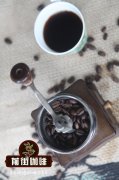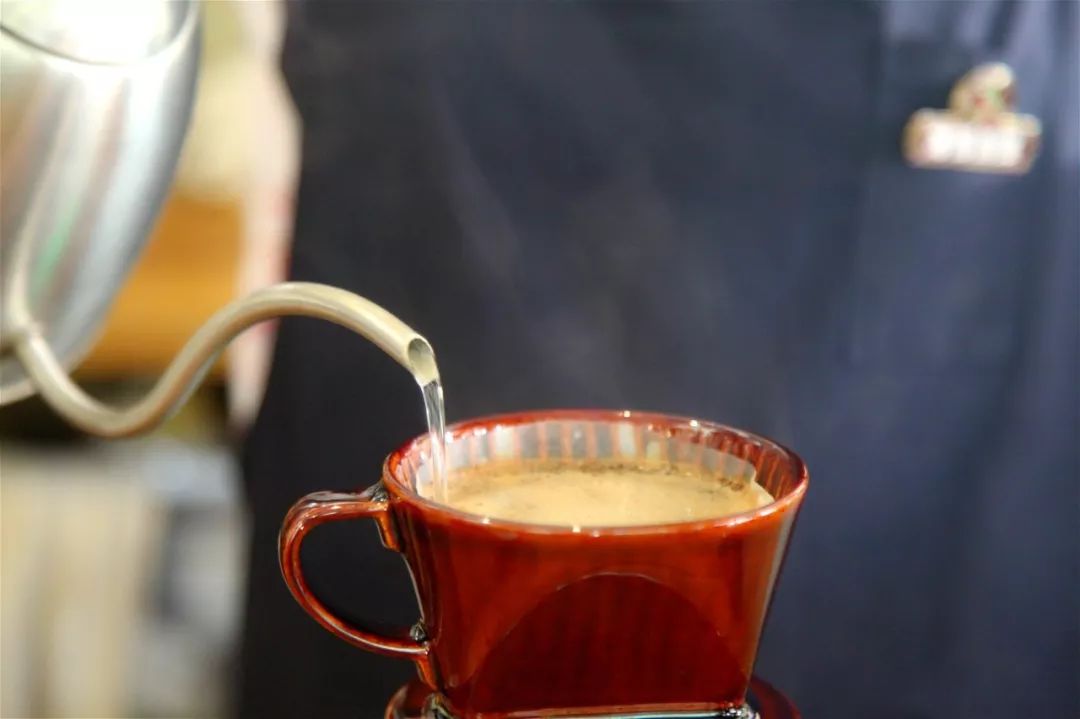90+ Coffee Manor introduction Ninety plus Rosa coffee bean processing process flavor and taste description

Professional coffee knowledge exchange more coffee bean information please follow the coffee workshop (Wechat official account cafe_style)
About Ninety Plus
Some people call it "90 +", but the manufacturer formally asks: please call us "90 +".
"90 +" does not refer to all coffee with a score of more than 90. Good coffee, one year, one year. Sometimes haunt different manors, but also have different taste characteristics. "90 +" refers to a top range of coffee with 13 flavors. These coffees only come from Ninety Plus Coffee, the creator of American boutique coffee. They are all old varieties of Ethiopian heirloom (Heirloom). After being cultivated in the ecological environment, they are processed according to the standard of works of art to optimize their taste. Ninety + for the pursuit of the ultimate flavor, very admirable. Their sustainable development model and environmental protection operation are also the learning goals of many coffee producers. Since the company was founded in 2006, the young company has made them known to coffee industry people all over the world in just a few years. The coffee series that made its debut in 2007 was immediately regarded as a precious show by coffee experts. We are also very excited to be chosen as the sole agent of 90 + in China in 2014. To coffee enthusiasts, bosom friends, and industry friends and best friends across the country, we solemnly launch this series of wonderful coffee experiences!
Joseph Brodsky, the founder of Ninety +, discovered early that all the world's high-quality raw coffee beans originated in Ethiopia, and its different flavors of many different varieties are no less than 10, 000 grapes into 1 million different wines. Ninety percent of the raw beans come from the original varieties of Ethiopia, including Gesha of Panama Manor, which is also the original variety of Ethiopian heirloom (Heirloom). The processing process is the specialty of 90 +, will separate these coffee according to variety, microclimate, fresh time one by one, taste one by one, specially design the processing method for each taste, achieve a kind of taste characteristic, just like the big brand design, study attentively, spend painstaking efforts to complete a handicraft that is close to art. Natural products go through a lot of refinement and improvement, and finally reach the most beautiful posture to present the content to everyone. In 2007, the founder and current CEO, Joseph Brodsky, personally went to Ethiopia, the native place of coffee, to look for wild varieties of coffee trees and tried different ways of treatment, and finally let coffee speak in its own voice, which was heard by the whole world, full of fruit aroma and rich connotation, shocking. Not enough, Joseph is actively buying a 134-hectare coffee plantation in Panama and planting 80, 000 gesha trees, which have been hailed as the best coffee variety in recent years.
Stories by Ninety Plus
Excellent achievement
Ninety Plus, translated directly means 90 +, or more than 90 points. Friends outside the industry may not understand that a coffee bean of more than 90 points means it is close to perfect for coffee lovers. Whether we are talking about the cup score or the evaluation score of Coffee Review (www.coffeereview.com), it is a hard-won honor.
The first coffee of 2007-Aricha Selection 7 90 + came out with a high Coffee Review score of 95 (the roaster is another Novo Coffee Roasters of the 90 + founder)
2009-Aricha Micro Selection 14 won the annual coffee world runner-up of the American Fine Coffee Association
2009-Aricha Micro Selection 33 became the world runner-up with Sammy Piccolo in the World Barista Competition.
2012-Perci Red Rose Summer from the Manor of Panama came out for the first time, scoring an all-time high of 97 points for Coffee Review (Barrington Coffee Roasting Co.)
About how to deal with it: W2, Ruby, Solkiln, N2
W2, H2, N2: it can be understood as the traditional way of processing raw beans, and 90 + also regards them as the distinction of taste.
Ninety Plus thought that coffee itself is a kind of fruit, so he made his own exclusive treatment according to taste (W2), (H2), and (N2). When you understand traditional coffee processing, you will find that a small amount of adjustment can blur the distinction between them. For example, a little washing can be added at different stages of the densification process to achieve a lighter and brighter washing taste; controlling the degree of pulp fermentation can also make a sun closer to the effect of a dense treatment, or dense treatment can be more like a solarization.
According to the degree of effect of fruit flavor on taste, it can be divided into: W _ 2 ~ H _ 2 ~ 2 ~ 2. The distinction between these three flavors can also be simply understood as treatment methods: W2=WASH washing treatment, H2=Honey honey treatment, N2=NATURE sun treatment:
W2: lower (Low) fruit tonality; emphasizes brightness, acidity, and floral aroma.
H2: warm (Moderate) fruit tonality; emphasizes sweetness, fruit taste (rather than fruit flavor), and tea taste.
N2: higher (High) fruit tonality; emphasizes unrestrained, sweet and sour, jam and dried fruit flavors.
Solkiln: the so-called Solkiln method is a special treatment of 90 + company's patented technology. They dry the fresh coffee fruit in a house originally used to dry wood. In this house, special equipment is used to control the temperature and humidity needed to maintain the stability of the internal environment, while eliminating the impact of the local humid climate on the coffee.
Red: the so-called "red treatment" is a special treatment carried out by the 90 + team through their own patented drying technology, which makes the color of shelled coffee beans show varying degrees of red. This treatment will once again enhance the aromatic characteristics of the coffee itself, and the taste will reflect a strong sweetness with obvious fruit flavor.
Ruby: the so-called "ruby" treatment is also a more difficult and extreme way of dealing with red. So that the red treatment of sweetness and fruit to the extreme, accidentally over will become a bad fermentation taste of the extremely bad areas. This method also requires a lot of manual screening. Every raw bean must meet the "ruby" standard in order to be called a "ruby" bean. It has been eliminated many times, tried many times, and only the last point can meet the standard of "ruby", so it is expensive.
About Level:
In the flavor spectrum of 90 +, there is a "Level" logo. It is the number after the product name is marked "L". For example, L12-means Level 12. The Level is probably in proportion to the price. It represents the grading model of raw beans: according to quality, quantity, production cost, 90 + based on the original excellent raw beans, continue to grade as follows:
Level 7: harvested in a single production area. The rare varieties with meticulous taste and special flavor are selected by hand and then treated by NinetyPlus to reach the standard of more than 90 +.
Level 12: harvest in a single production area. Negative adjectives such as "must be recognized and indelible" are used on the website to indicate that this grade of beans must be a good taste that every coffee maker will never forget.
Level 21 (L21), Level 39 (L39), most of these are Gesha varieties planted in Panamanian manors. Ethiopian Nekisse Red processed by special Red also belongs to Level 39 (L39).
Level 95 (L95) and Level 195 (195) are beans in the advanced microenvironment of the Panamanian manor, which are processed by patented drying technology after a long screening process. Reach the top taste standard in the design. Most of them will be processed under the personal care of the sponsor Joseph. The annual output may only reach about ten to dozens of kilograms. It's a collection.
Important Notice :
前街咖啡 FrontStreet Coffee has moved to new addredd:
FrontStreet Coffee Address: 315,Donghua East Road,GuangZhou
Tel:020 38364473
- Prev

Does fine powder cause bitterness, astringency and miscellaneous taste during hand flushing? The finer the coffee powder, the more bitter the coffee?
Professional coffee knowledge exchange more coffee bean information Please follow the coffee workshop (Wechat official account cafe_style) recently thought that the fine coffee powder made from a metal filter cup will not be bitter or astringent, and it will only increase the taste after a while, but it does not go so far as to say that it becomes bitter and astringent. The coffee made from the filter paper has no fine powder, but it will pour out a cup.
- Next

Kalita three-hole filter cup hand-brewed coffee demonstration kalita fan-shaped filter cup brewing characteristics and tricks
Professional coffee knowledge exchange more coffee bean information Please follow the coffee workshop (Wechat official account cafe_style) Preface We usually brew coffee, more commonly used V60 filter cup, but V60 flow rate is faster, and higher requirements for water flow and flow control requirements, it may be difficult for beginners, then kalita filter cup will be a better choice for appliances. Why is it called kalit?
Related
- Beginners will see the "Coffee pull flower" guide!
- What is the difference between ice blog purified milk and ordinary milk coffee?
- Why is the Philippines the largest producer of crops in Liberia?
- For coffee extraction, should the fine powder be retained?
- How does extracted espresso fill pressed powder? How much strength does it take to press the powder?
- How to make jasmine cold extract coffee? Is the jasmine + latte good?
- Will this little toy really make the coffee taste better? How does Lily Drip affect coffee extraction?
- Will the action of slapping the filter cup also affect coffee extraction?
- What's the difference between powder-to-water ratio and powder-to-liquid ratio?
- What is the Ethiopian local species? What does it have to do with Heirloom native species?

